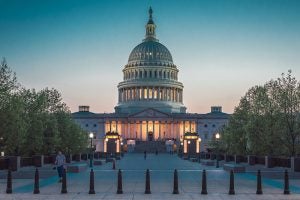It seems every day I come across a heartbreaking headline about how extreme heat, wildfires and ongoing drought are plaguing the West.
Indeed, the climate crisis has hit home in the Colorado River Basin and is threatening everything from agriculture to water supplies. The basin’s two main reservoirs — Lakes Powell and Mead — are at record low water levels, threatening the water security essential to communities, wildlife, recreation and agricultural production across the Southwest.
To help policymakers address these pressing climate challenges, EDF contributed to a recent report, Ten Strategies for Climate Resilience in the Colorado River Basin, authored by Martin & McCoy and Culp & Kelly, LLP, that analyzed multiple approaches to building climate resilience and identified the top 10 priorities. Read More










